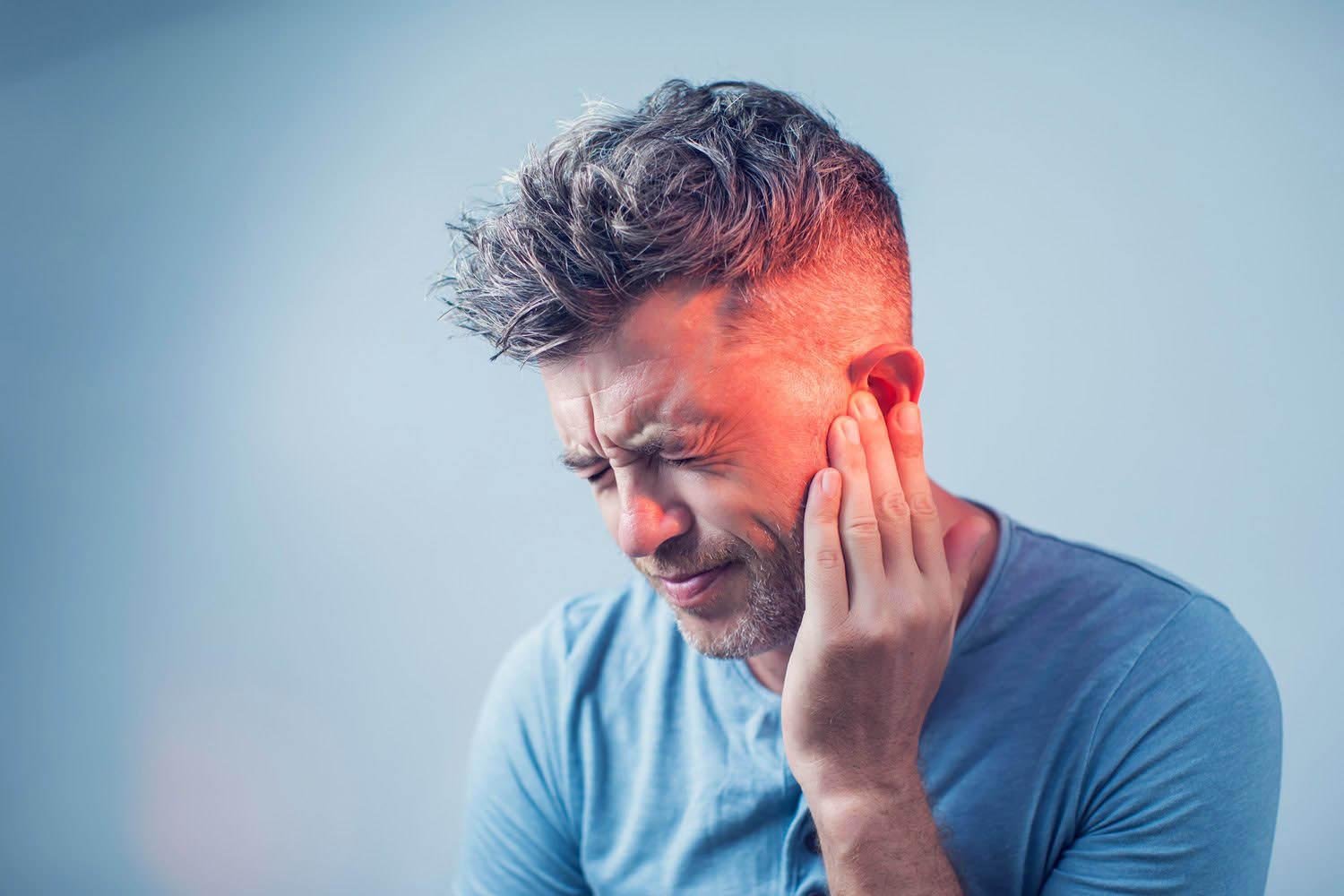
Causes of tinnitus
Tinnitus (ringing in the ears or head) can have different causes—hearing loss being one of them. Exposure to loud and/or excess sounds can damage the tiny hair cells in the inner ear, leading to hearing loss.
In fact, an estimated 90% of people with tinnitus have some degree of hearing loss.
What causes tinnitus?
There are many possible causes. The most common cause of tinnitus is damage to the sensory cells in the cochlea. This is the snail shell-like organ in the inner ear where sounds are converted into electrical signals. The ringing in your ears is the result of your brain trying to compensate for the loss of hair cells.
The auditory nerve, responsible for transmitting sound signals to the brain, plays a crucial role in our hearing abilities. When this nerve is affected, it can result in side effects such as tinnitus.
One common cause of tinnitus is exposure to loud noises over time. Prolonged exposure to loud sounds can damage the delicate structures in the ear, including the auditory nerve.
Damage to the hair cells here can also cause hearing loss.
Common causes of tinnitus include:
1. Exposure to loud, sudden, or excessive noise
2. The natural aging process
3. Middle ear infections
4. Head, neck, and/or temporomandibular joint (TMJ) injuries or dysfunction
5. Headaches and migraines
6. Reaction to medication
7. Emotional distress
8. Diabetes
9. Hyperacusis (intolerance to noise)
10. Other untreated medical conditions such as Ménière's disease, otitis media (middle-ear infection), etc.


Online Tinnitus Test
People with this condition often experience hearing loss too. Our quick online test can help you test for tinnitus and understand what you can do about it if you have tinnitus/hearing loss.
Your result:
Indications of tinnitus and hearing loss
Book a FREE hearing test in a clinic near you
Book FREE hearing test* The result of the test may only be used for guidance. Official conclusions about hearing loss/tinnitus can be provided by our certified hearing care experts.
Your result:
Indications of hearing loss
Book a FREE hearing test in a clinic near you
Book FREE hearing testYour result:
Symptoms of tinnitus indicated
* The result of the test may only be used for guidance. Official conclusions about hearing loss/tinnitus can be provided by our certified hearing care experts.
Your result:
No tinnitus or hearing loss indicated
Your answers indicate that you do not have tinnitus - or that you have non-bothersome tinnitus that is not currently affecting your everyday life. If you experience symptoms of tinnitus in the future, we recommend visiting your local health care provider.
* The result of the test may only be used for guidance. Official conclusions about hearing loss/tinnitus can be provided by our certified hearing care experts.
Can stress or anxiety cause tinnitus?
While it's unlikely that stress may be a direct cause of tinnitus, research shows that there could be a link.2
Some main causes of stress include bereavement, emotional or physical health changes, divorce, feeling under pressure, facing big changes in your life, and excess worry about something. The stress this puts on your mind and body may cause temporary tinnitus, or cause existing tinnitus to flare up.
But tinnitus can cause stress and anxiety, and affect people in different ways and to different degrees. Some also find that it makes them irritated or depressed, while others aren't affected much or at all. Tinnitus may also make it difficult to fall sleep and stay asleep.

Can certain medications cause tinnitus?
There are some medications that can affect your ears and your hearing health; these are referred to as being ototoxic.
Which medications can cause tinnitus?
Ototoxic drugs may temporarily intensify tinnitus symptoms, while some are thought to cause tinnitus and/or long-term hearing loss. There are more than 200 known ototoxic medications (prescription and over-the-counter) on the market today.3
Ototoxic drugs are often used for purposes where the benefits outweigh the risks of hearing loss or tinnitus. It's always a good idea to ask your doctor about the potential side effects when prescribed a new medication.

Can COVID-19 cause tinnitus?
Studies have shown a link between COVID-19 and hearing loss, tinnitus, and dizziness due to the effect that the virus has on the nervous system and the auditory–vestibular system.4
Contact your doctor if you are unsure about your symptoms or are still experiencing symptoms four weeks after having had coronavirus.

FAQs
Sources
1. https://hearinghealthfoundation.org/hearing-loss-tinnitus-statistics
2. Ciminelli, P., Machado, S., Palmeira, M., Carta, M. G., Beirith, S. C., Nigri, M. L., Mezzasalma, M. A., & Nardi, A. E. (2018). Tinnitus: The Sound of Stress?. Clinical practice and epidemiology in mental health : CP & EMH, 14, 264-269.
3. https://www.asha.org/public/hearing/Ototoxic-Medications/
4. Jafari, Z., Kolb, B., & Mohajerani, M. (2022). Hearing Loss, Tinnitus, and Dizziness in COVID-19: A Systematic Review and Meta-Analysis. Canadian Journal of Neurological Sciences, 49(2), 184-195.

